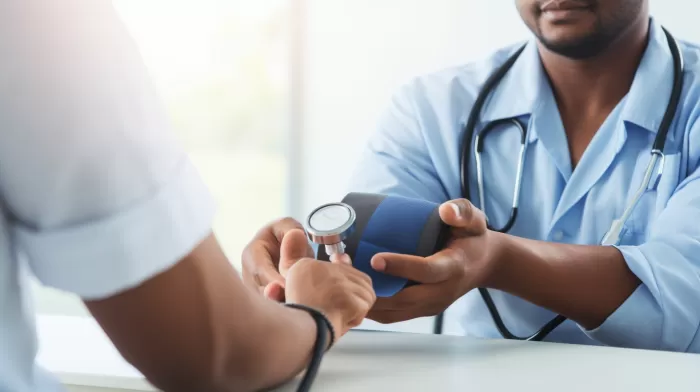Are you tired of the vague symptoms and feeling dismissed by doctors? You’re not alone. A study out of the University of Wisconsin School of Medicine and Public Health found that young adults between the ages of 18 to 24 who have high blood pressure are 28% less likely to be diagnosed for hypertension than people over age 60 who have it.
This life-threatening issue is being overlooked by many doctors, which might put the lives of some young people at risk. So, let’s take a deeper look into the issue and how to address it.
Blood Pressure and Youth: Why Is It Overlooked?
High blood pressure is often considered an “older person” problem, but it can affect people of all ages. For young adults, it’s essential to attend regular checkups and request their blood pressure reading. Even when going to the doctor for four years, most young adults suffering from high blood pressure remain undiagnosed and untreated.
A key reason that high blood pressure in young adults is overlooked is that it is not often expected in this age group. Doctors tend to focus on different potential causes in the younger population and might overlook hypertension.
The study also discovered that some doctors—especially male doctors and family practitioners—are more likely to overlook high blood pressure in young adults.
The Longer It’s Undiagnosed, the Worse It Can Get
High blood pressure might not seem like a big deal because it often comes with vague or no symptoms. But make no mistake, when left untreated, hypertension can lead to devastating consequences.
The longer high blood pressure goes undiagnosed, the higher the risk of stroke, heart attack, and kidney failure. It’s especially concerning for young adults who typically should have many more years ahead of them.
Pay Attention to the Signs and Speak Up
Don’t wait for your doctor to bring up high blood pressure. If you’re experiencing symptoms like headaches, nosebleeds, fatigue, blurry vision, or confusion, advocate for your health. Ask your doctor to check your blood pressure and discuss any concerns you have.
Remember, it’s your body and your life, and no one will advocate more passionately for your health than you.
What to Do If Your High Blood Pressure Goes Undiagnosed
Suppose you believe that you have high blood pressure, but your doctor is not addressing the issue. In that case, there are some steps you can take to ensure you receive the appropriate attention and treatment.
1. Get a Second Opinion
Don’t hesitate to consult another doctor. Different physicians might have different perspectives on your symptoms, and it’s possible that a new doctor will consider aspects that the previous one missed.
2. Track Your Own Blood Pressure
Invest in an at-home blood pressure monitor to keep records and detect any unusual trends. It is important to use an accurate device and learn how to measure it correctly. You can then report your findings to your doctor for further investigation.
3. Adjust Your Lifestyle
Whether or not you have hypertension, it’s essential to lead a healthy lifestyle. Eating a balanced diet, getting regular exercise, and managing stress can all lower the risk of high blood pressure and improve your overall well-being.
4. Address Other Issues That Could Cause Similar Symptoms
If you’re experiencing symptoms like fatigue or headaches, talk to your doctor about other potential causes and treatments. Remember not to self-diagnose or self-medicate, as only a doctor can determine the root of your issue.
Help Yourself to a Healthy Future
According to Dr. Heather Johnson, the lead researcher of the study, “once high blood pressure is diagnosed and young adults receive the treatment they need, they can achieve pretty high control rates.” Keep in mind that you have the power to lower your risk of life-threatening complications due to high blood pressure. Don’t be afraid to advocate for your health and seek out multiple opinions until you can find the root of the problem.



